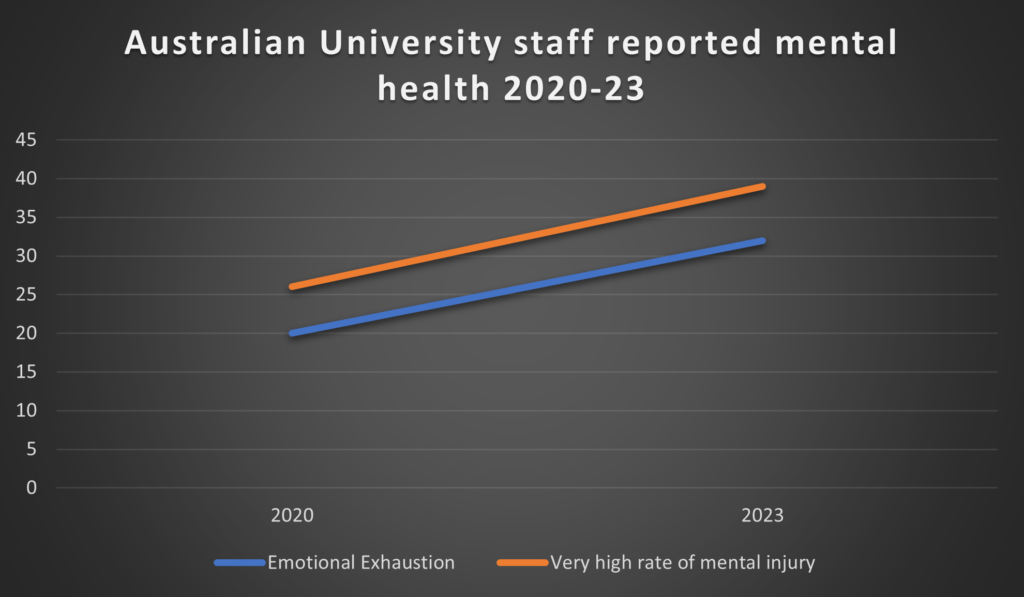
For four years, university staff have been working more and enjoying it less – but one key factor is likely to keep making mental health outcomes worse.
A University of South Australia national survey found significant declines on a range of measures. While 20 per cent of surveyed staff reported signs of emotional exhaustion in 2020, 32 per cent did last year.
In 2020, 26 per cent had a very high rate of mental injury due to workplace conditions, last year 39 per cent did – compared to 11per cent across the economy.
The new survey includes 25 stressors staff reported, with pressure of work and concerns about restructures prominent.
‘Twas probably ever thus, but the survey also reports a range of digital stressors that are making work worse, instead of more productive.
Just under 80 per cent of responders pointed to the digital tech demands in working from home and around 75 per cent of responders felt pressured to keep up with new digital platforms, but lacked the time to do it.
And nearly as many are overwhelmed, saying “there are too many digital communication platforms.”
The nearest thing to good news for IT directors with plans, is that only 65 cent report they only use work ICT to send email.
But the new right to disconnect law will go down well among the 50 per cent of responders who report receiving work-related emails during evenings and on weekends.
Even so, the challenge of remote work may not be enough to encourage people back to the office. Just a third of respondents agreed that is difficult to manage digital work demands working from home. And a quarter stated they did not have enough tech infrastructure to manage.
Overall the survey team says the report demonstrates, “in many ways and metrics, the university sector is letting its staff down.” However, whether people are working on campus or at home may not make a big difference to how happy or unhappy they are.
